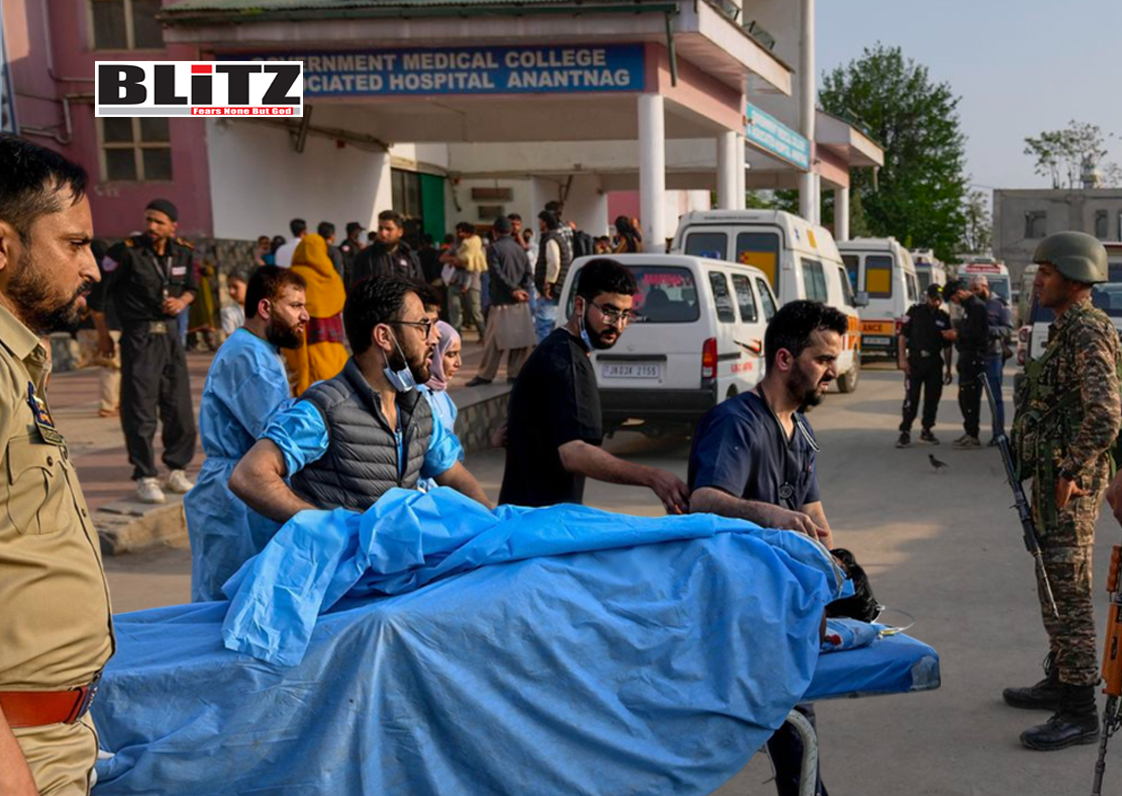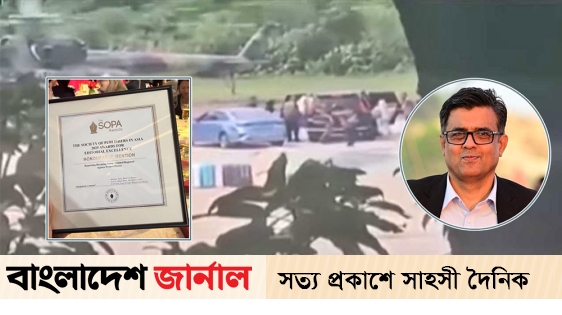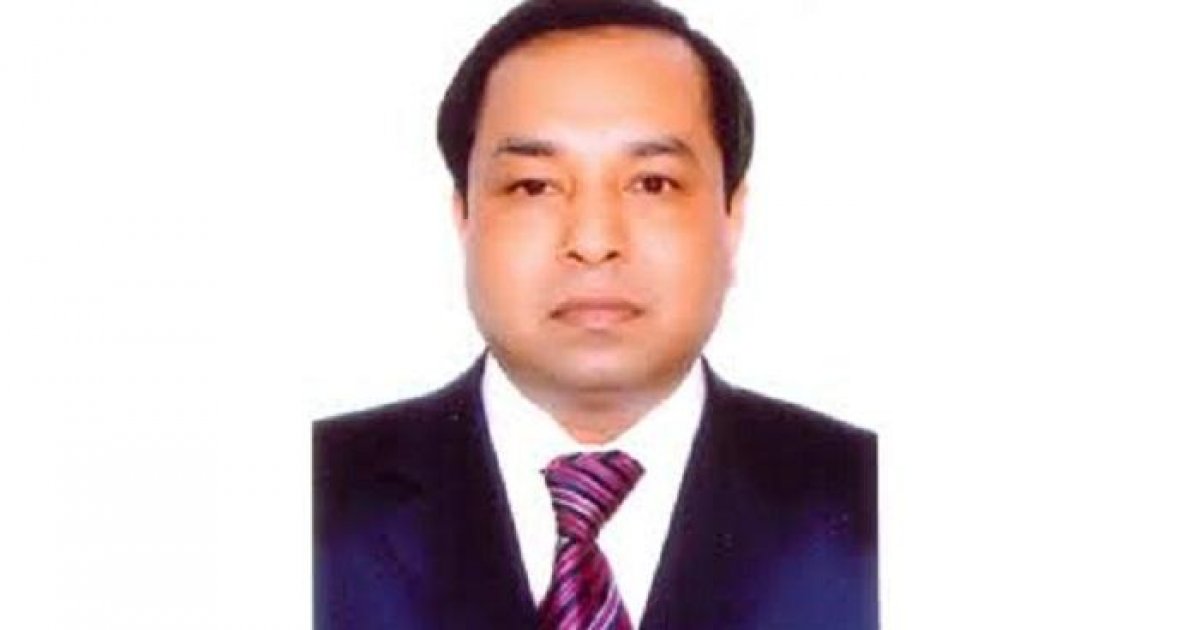Pakistani ISI may attempt fresher terrorist attacks inside India using Bangladesh soil
In one of the deadliest terror attacks in recent years, at least 26 tourists were killed on April 22 in the Indian state of Jammu and Kashmir when gunmen opened fire at close range in the scenic town of Pahalgam. The attack has shaken the nation and drawn widespread international condemnation. The Resistance Front (TRF), a group widely believed to be a proxy of Pakistan-based Lashkar-e-Taiba (LeT), has claimed responsibility for the massacre.
According to police reports, the attackers methodically checked identity cards and inquired about the victims’ religion before executing them. Four gunmen are believed to have carried out the coordinated assault during Kashmir’s peak tourist season, targeting a group of unarmed civilians. Several victims remain in critical condition at local hospitals.
Former Jammu and Kashmir Chief Minister Omar Abdullah condemned the atrocity, calling the perpetrators “inhuman and worthy of contempt.” “This attack on our visitors is an abomination,” he posted on X (formerly Twitter). “No words of condemnation are enough.”
Prime Minister Narendra Modi, who was on an official visit to Saudi Arabia at the time, vowed swift retribution. “Those behind this heinous act will be brought to justice… they will not be spared,” he wrote. “Our resolve to fight terrorism is unshakable and it will only get stronger.” Home Minister Amit Shah confirmed that Modi would cut his trip short and return to India.
Russian President Vladimir Putin also expressed condolences, describing the victims as “peaceful people – citizens of various countries.” In a message published on the Kremlin website, Putin extended sympathies to the families and wished the injured a speedy recovery.
Kashmir has long been a flashpoint between India and Pakistan, both of which claim the region in its entirety. Since their independence from British rule in 1947, the two countries have fought three wars, with Kashmir being the central issue in two of them. In 2019, India revoked Article 370, which gave special autonomy to Jammu and Kashmir, prompting both domestic unrest and international scrutiny. Although the region had experienced a relative lull in violence in recent years, attacks like this suggest a disturbing resurgence of militancy.
India has consistently accused Pakistan of aiding and abetting terrorism across its borders. At the UN General Assembly last year, Indian Foreign Minister S. Jaishankar stated, “Pakistan’s cross-border terrorism policy will never succeed,” warning that India would impose “consequences” for continued militant activity originating from Pakistani soil.
This attack, however, may not be isolated to Pakistan’s western frontier. Experts have begun to warn of a dangerous cross-border nexus forming to India’s east as well, particularly involving the political situation in neighboring Bangladesh.
On August 5 of the previous year, widespread anti-government protests in Bangladesh forced Prime Minister Sheikh Hasina to flee to India. In the aftermath, an interim government was established under Nobel laureate Dr. Muhammad Yunus. Although internationally recognized for his contributions to microfinance, Yunus’s political leadership has raised eyebrows in India, especially due to his perceived alignment with Pakistan.
Reports from regional security analysts indicate a growing collaboration between Pakistan’s Inter-Services Intelligence (ISI) and the Yunus-led administration. While difficult to confirm independently, circumstantial evidence has raised alarms among Indian intelligence circles. These include alleged safe passage and logistical support for militants, as well as an increasingly pro-Islamabad rhetoric in Dhaka’s political discourse.
Adding fuel to the fire, ISI chief Lt. Gen. Asim Malik recently delivered a provocative speech condemning India and espousing anti-Hindu sentiments. This has only reinforced fears that the ISI is actively planning to destabilize India not just from the west, but now potentially from the east as well.
India’s northeastern region—known as the Seven Sisters—has historically been vulnerable to insurgent movements, some of which have received external support. The possibility of renewed Pakistani involvement in fomenting unrest there, possibly with Bangladeshi assistance, has become a serious strategic concern.
“This isn’t just about Kashmir anymore,” said a senior Indian intelligence officer on condition of anonymity. “We’re looking at a coordinated, multi-front threat involving state and non-state actors with the intent to undermine India’s internal security from both ends.”
Analysts warn that if this trend continues unchecked, India could find itself fighting terror on two fronts. “The Kashmir massacre might be the opening salvo in a much larger, more coordinated campaign,” said Lt. Gen. (Retd.) R. P. Singh, a counter-insurgency expert.
The international response has been mixed. While Russia and a handful of other nations have issued strong condemnations, the United Nations has remained conspicuously silent. Critics argue that this lack of a robust international response emboldens state-sponsored terrorism.
“There needs to be a global consensus that terrorism—especially when supported by governments—cannot be tolerated,” said Dr. Renu Sharma, an international law expert based in New Delhi. “Selective outrage only emboldens the perpetrators.”
For India, this moment demands more than rhetoric. The massacre in Pahalgam is not just a tragedy—it’s a strategic warning. New Delhi must reassess its security and diplomatic posture toward both Islamabad and Dhaka. The growing influence of Pakistan’s ISI in Bangladesh, coupled with the silence or complicity of regional actors, demands immediate and sustained countermeasures.
India must also work to bolster regional intelligence cooperation, increase counter-terror infrastructure in vulnerable border areas, and reevaluate its diplomatic engagements with neighboring states harboring ambiguous allegiances.
As the sun sets over the bloodstained meadows of Pahalgam, one thing is certain: India faces a new and evolving threat landscape. The grief of the families affected will echo for years, but their pain must not be in vain. The country must rise—stronger, more united, and prepared to meet the next challenge, wherever it may come from.
The road ahead may be long and fraught with danger. But if there is one thing history has shown, it is that India does not bow to terror—it rises in defiance of it.
Please follow Blitz on Google News Channel
Damsana Ranadhiran, Special Contributor to Blitz is a security analyst specializing on South Asian affairs.
pakistani-isi-may-attempt-fresher-terrorist-attacks-inside-india-using-bangladesh-soil















Leave a Reply